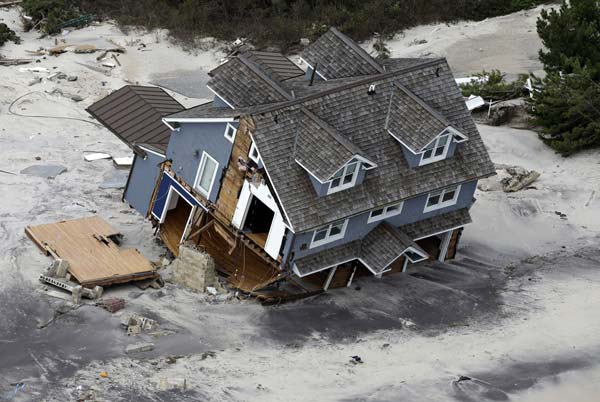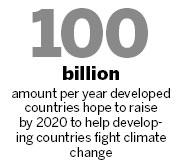

NGOs should fully play their roles in promoting climate negotiations in Doha, China's chief climate change negotiator said on Wednesday.
Su Wei, director of the climate change department at the National Development and Reform Commission, encouraged NGOs to make more efforts to advance negotiations on key issues such as technology transfers to developing countries by using their influence.
 |
|
A collapsed house along the central Jersey Shore. Though it's tricky to link a single weather event to climate change, Hurricane Sandy was "probably not a coincidence" but an example of extreme weather events that are likely to strike the US more often as the world gets warmer, according to the United Nations. Mike Groll / Associated Press? |
"If we are trying to close the mitigation gap, on one hand we need to press them to take more ambitious mitigation action or targets. On the other hand we need to try to press them to provide the necessary means and measures to enable developing countries to reduce emissions and to build more resistance to climate change," Su said during a dialogue session with domestic and international NGOs.

He said the core task for the Doha conference is to finalize the necessary documentation of the second commitment period of the Kyoto Protocol.
"The various pledges or numbers that have been put forward by the parties concerned, we don't think it's sufficient either by science or by their historical responsibilities to reduce the emissions in an ambitious way," said Su, adding that increasing the level of ambition in the second commitment is more important than the discussion over its length.
When addressing finance issues, Su emphasized that it is something "we need more transparency on".
As for long-term financing, he said there was no information on how developed countries will reach their goal of raising $100 billion per year by 2020 to help developing countries fight climate change.
"When is the starting point? You can't suddenly go from $1 to $100 billion," Su said.
wuwencong@chinadaily.com.cn












